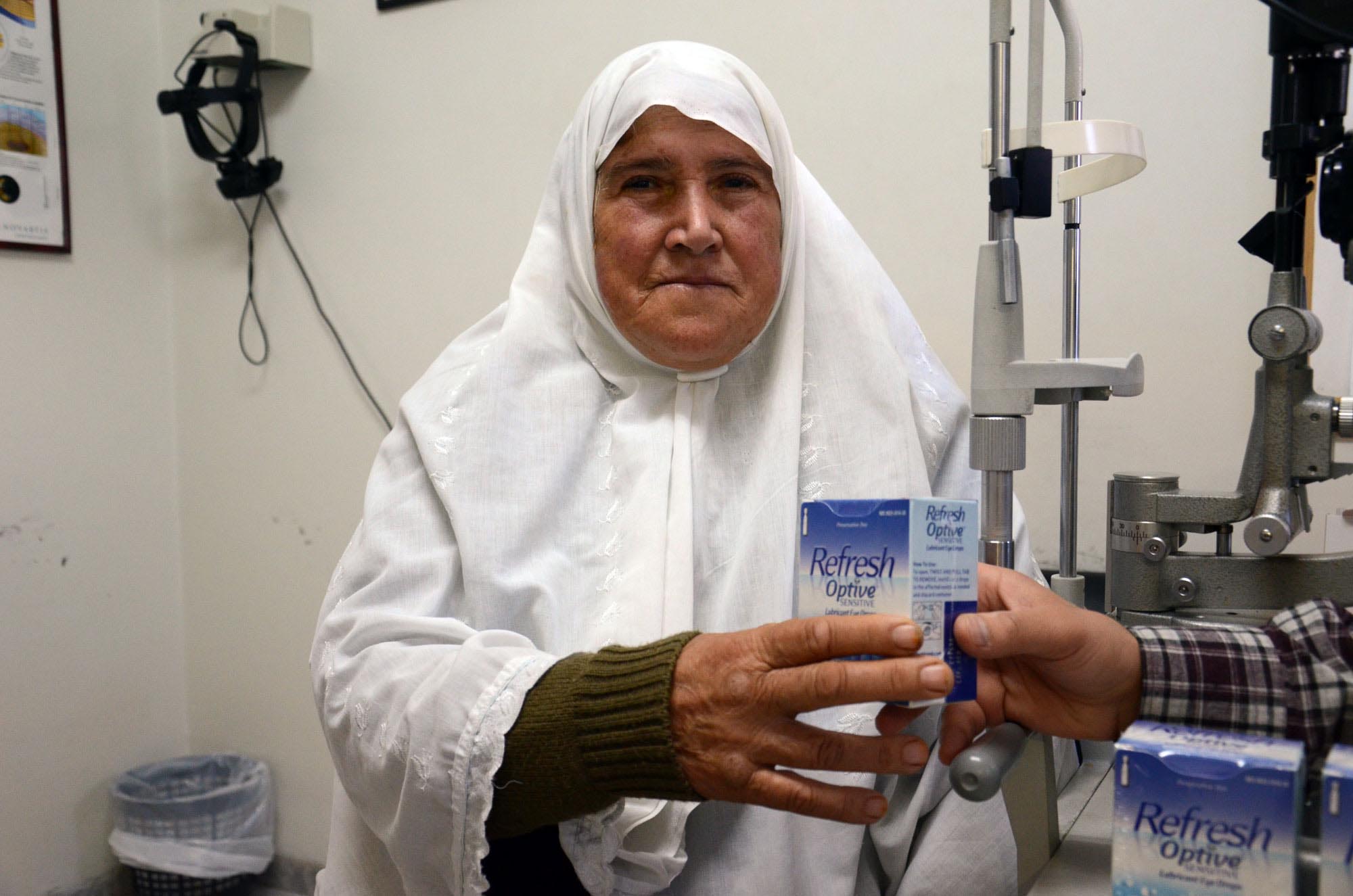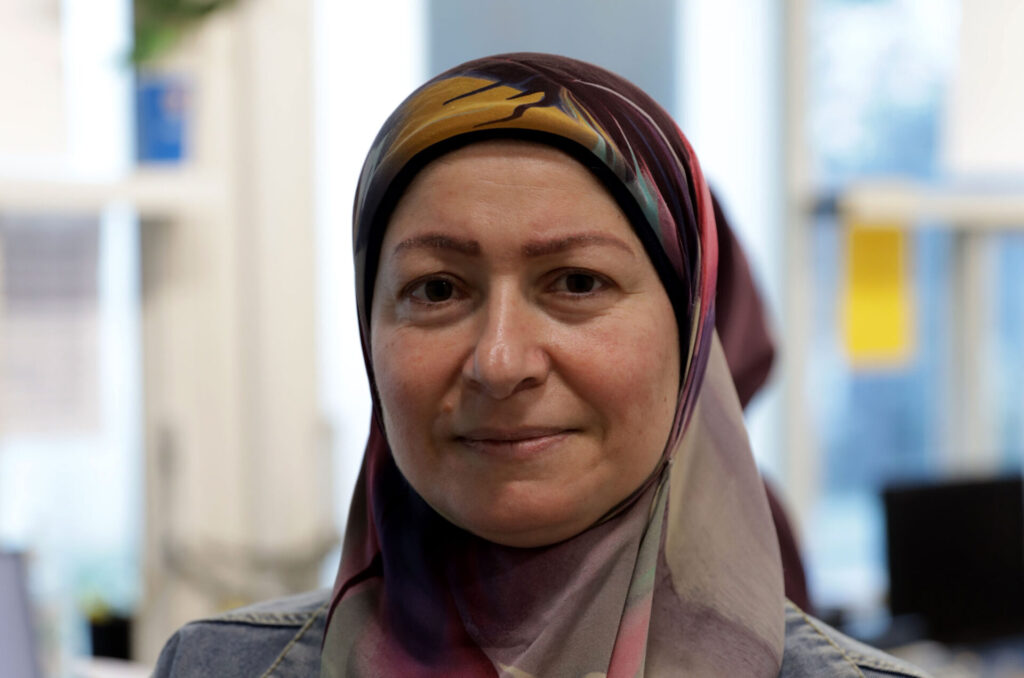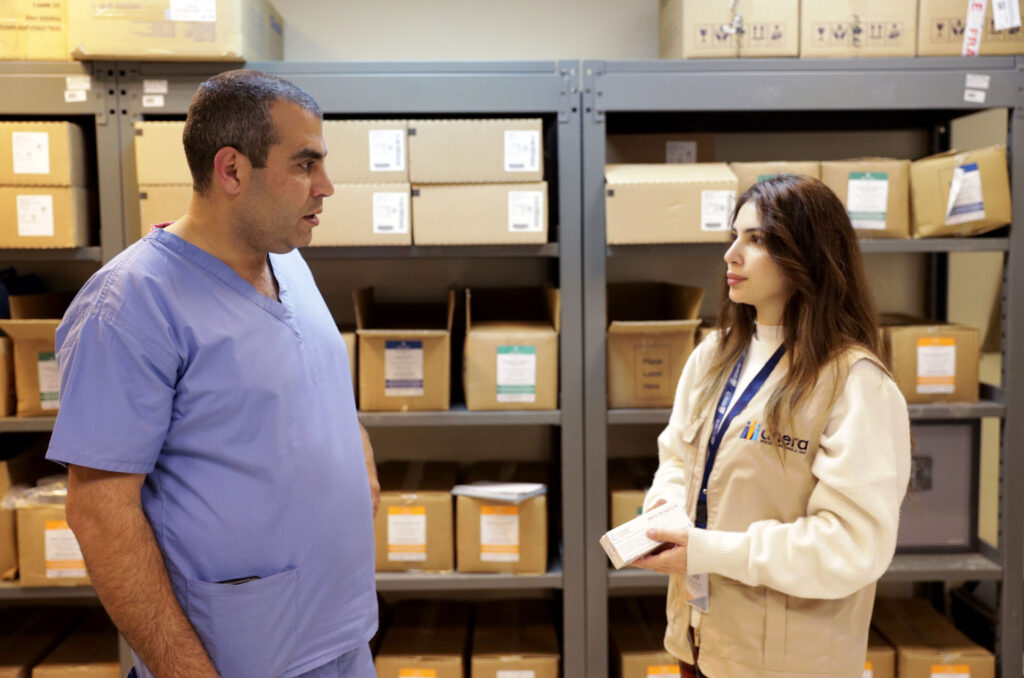HEALTH
Clearer Vision for Palestinians in Hebron
Jan, 2015
Amineh is one of many impoverished patients in Hebron who relies on the eye clinic for affordable care.
Amineh Sharawneh finally entered an eye clinic in Hebron, West Bank after suffering for a long time from blurred vision. At 67, Amineh has had diabetes for 10 years and it has been badly affecting her vision for the past two
Amineh reported seeing floating objects accompanying the blurriness. After a thorough examination of her eyes, a doctor diagnosed Amineh with cataracts – a clouding of the eye lens.
“It is quite expected, especially for a woman her age, as age is one of the causes of cataracts,” said Dr. Alaa Talbishi, an ophthalmologist at the Hebron-area clinic that Amineh visited.
Without using eye drops to ease the pain and itching from dryness, patients can damage their vision.
“Her condition requires an urgent surgery on her right eye, as negligence and lack of treatment could cause a gradual decrease in vision, and, ultimately, blindness,” said Dr. Talbishi. “She also needs to use lubricant eye drops at least 3-4 times a day before and after surgery.”
Dr. Talbishi stressed the importance of eye drops for clearer vision to Aminah, explaining that without using them to ease the pain, burning sensations and itching from dryness, patients can damage their vision.


Amineh left the eye clinic with a pack of AmeriCares-donated eye drops at no cost. The drug, delivered by Anera, is one of the most vital drugs that the charitable clinic serving Palestinians in Hebron provides. “There are numerous types of artificial tears available here, but one of the very best drugs is Refresh,” said Talbishi.
He then went on to explain how the product is designed to prevent inflammations and drug reactions: “This product is preservative-free which is important when you’re treating a patient suffering from dry-eye. It also safe in terms of sterility, because it comes in ampoules which patients can dispose of at the end of each day.”
These particular eye drops are higher in cost than others in the local market, so the hospital is grateful for this donation, which they provide to their patients at minimal cost or for free, depending on the patients’ financial situations.
“I examine 30-40 patients a day and I wouldn’t hesitate at all to prescribe it to my patients,” stated Dr. Talbishi confidently.


